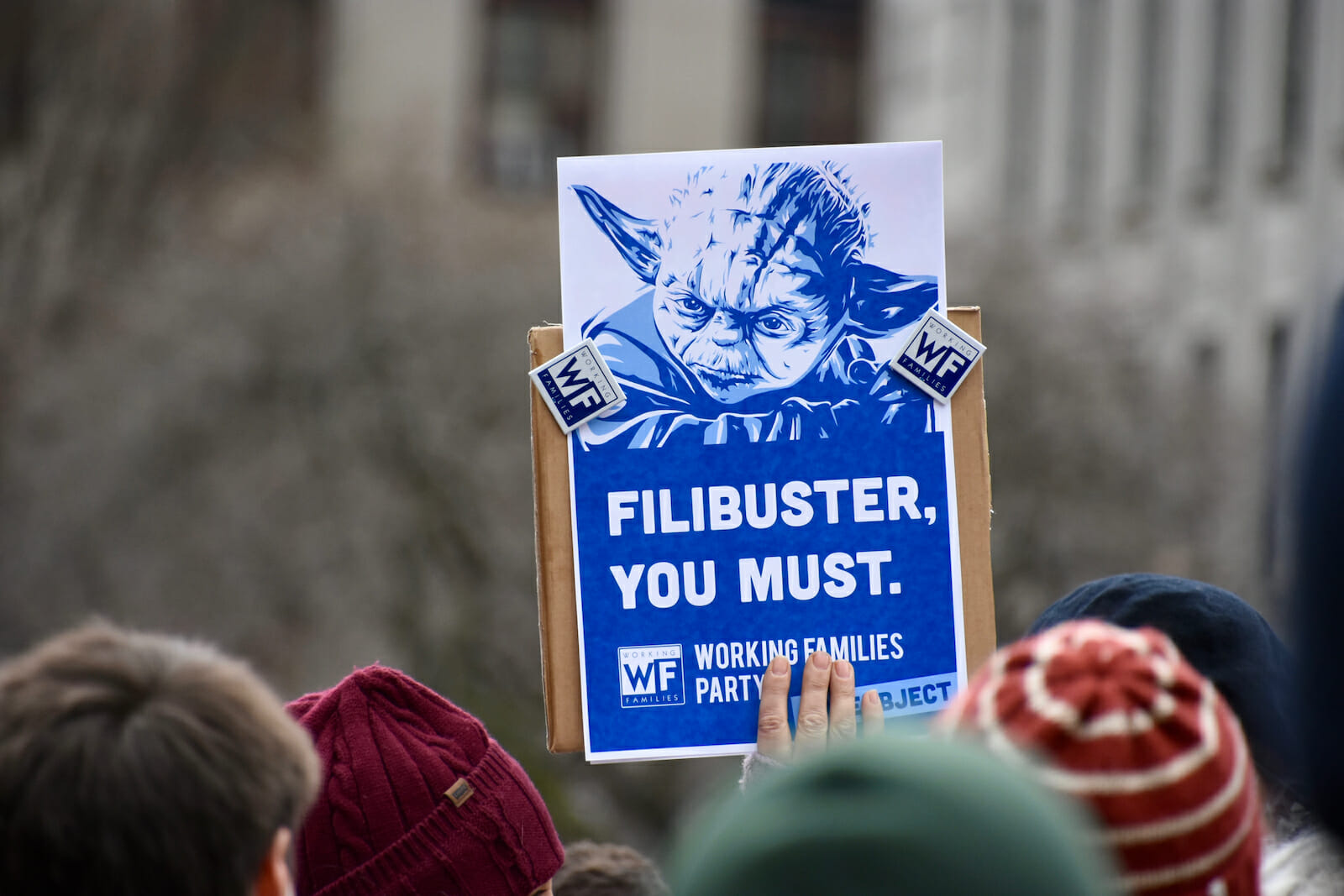
Politics
The Working Families Party is Transforming Southern Politics
Of all the things to come out of politics in 2017, perhaps the most surprising is the way in which the South, traditionally a deep red region politically, has transformed local politics of the leftist variety. While organizations such as Our Revolution and Democratic Socialists of America have gained much notoriety over the past year, one group that has gone less recognized is the Working Families Party. Despite being formed and headquartered in New York, the WFP has created a left-wing buzz in states such as Mississippi, Alabama, and Louisiana, making the South a new hotbed for progressive politics.
Earlier this month, progressive community organizer, LaToya Cantrell, was elected the first female mayor of New Orleans. In the November 18th run-off election, Cantrell became the latest left-wing mayoral candidate elected to a major Southern city. Back in October, the New Orleans WFP came out with a glowing endorsement of Cantrell, stating that: “Whether fighting for more affordable housing in the city or a $15 minimum wage or advocating for strong criminal justice reform to end the school to prison pipeline in our city and take on the bail bond industry – LaToya has clearly demonstrated her commitment to fight for the issues that matter most to New Orleans’ working families.”
Though the race was largely dominated by local issues pertaining specifically to New Orleans and local communities, Cantrell’s progressive brand of politics demonstrates how even in the South, Democrats can embrace a more left-wing view point and still win. This has been an ongoing battle within Democratic circles and the WFP has worked hard to organize and galvanize grassroots support for progressive candidates who can speak directly to the working families in local communities. According to The Huffington Post, the WFP in New Orleans reached out to 40,000 people via text, canvasing, and by phone during the race. According to the WFP’s director of communications, Joe Dinkin, their goal for the country and particularly the South, is to “[seek] outsider candidates who put forward a transformative, progressive vision of making government serve the many and not the few.”
WFP has put an exceptional amount of effort in Southern cities this year and have seen noteworthy results. In October, Randall Woodfin was elected mayor of Birmingham, defeating incumbent mayor William Bell. Bell had been active in Birmingham politics for 40 years and served as mayor since 2010. During the campaign Woodfin criticized Bell for his failure to adequately utilize the resources of Birmingham, stating in an interview with The Huffington Post that: “There’s not a shortage of funding in Birmingham, there’s a shortage of priorities and a vision to move the city forward…” Woodfin’s platform included a tuition-free community college program for public high school graduates, a $15 city minimum wage, and a summer jobs program for teenagers. Once again, the WFP played an instrumental role in helping Woodfin get elected with the Huff Post labelling his win as a “coup for national progressive groups” that supported Woodfin, notable among them, the WFP and Our Revolution.
This past June, radical activist Chokwe Lumumba Jr. was elected mayor of Jackson. Lumumba declared that he would work to make Jackson, Mississippi the “most radical city on the planet.” Endorsed by the Working Families Party, Lumumba, who is by far the most radical of those mentioned thus far, has proposed plans to do just that. One of his main proposals for the city was the creation of publically funded economic development via local cooperatives in which member-owned businesses flourish. Lumumba cited the Green Bay Packers as a model for local businesses in Jackson: the Packers franchise is publicly owned and operated by the people of Green Bay.
By connecting to voters and members of local communities through grassroots efforts, the WFP has produced three strong progressive candidates who now oversee the largest cities in Louisiana, Alabama, and Mississippi. Dan Cantor, the national director of WFP stated last spring that, “our nation will only change from the grassroots up.” This goes against the conventional wisdom of the Democratic Party leadership during the 2016 race which believed that Hillary Clinton and Donald Trump’s national race would ‘trickle down ballot’ and help Democrats nationwide. Donna Brazile, a grassroots organizer herself, speaking about her new book Hacks appeared on “Morning Joe” earlier this month, criticizing that strategy. Brazile told host Joe Scarborough, “it’s coming from the bottom up, it’s not top down politics anymore, it’s bottom up.”
From the bottom up, the Working Families Party has been going into communities and fostering candidates who can directly speak to people in those communities and the issues that matter to them. From wages, crime, trash, gentrification, and rent, the WFP is organizing in the streets to change the culture in Southern cities.
To say that the success of the WFP in the South is a result of Bernie Sanders, the aftermath of his campaign, and his endorsement of Woodfin, is too easy and simplistic. Rather, as Sarah Jaffe writes in the New Republic, Bernie Sanders isn’t winning races in the South or in places where Democrats aren’t traditionally supposed to win, “activists in Birmingham and Jackson and Albuquerque and Long Island are winning them—left-wing activists who’ve toiled for years in the trenches, working with a new wave of organizers from Black Lives Matter and other insurgent groups, who bring social-media savvy and fired-up young voters into the mix.” Rather than play into the national narrative of Bernie Sanders vs Hillary Clinton, the WFP is working with local communities to make real substantive change in those areas with left-wing politics. Jaffe writes that while Our Revolutions’ endorsement of Woodfin was helpful, ultimately, “it was an army of Birmingham volunteers running a door-to-door canvass that made the difference.”
While the national media remains fixated on national narratives, organizations like the Working Families Party remain committed to grassroots organizing and through that organizing are creating a surge of left-wing politics in the deep red South.

